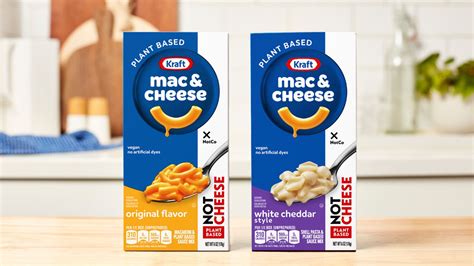
The acrimonious departure of Jordon Hudson from the New England Patriots, culminating in his signing with the rival Miami Dolphins, is reportedly validating concerns about the Patriots’ organizational culture under Bill Belichick’s successor, Jerod Mayo, and the influence of de facto general manager Eliot Wolf. An unnamed NFL insider claims the situation exemplifies what many perceived as an insulting contract offer from Patriots owner Robert Kraft, a move interpreted as a sign of disrespect towards the veteran linebacker.
Jordon Hudson’s quick exit from Foxborough this offseason has ignited a firestorm of controversy, with an insider suggesting that Robert Kraft’s lowball contract offer to Hudson has exposed deeper issues within the Patriots organization under its new leadership. The situation, resulting in Hudson’s signing with the division-rival Miami Dolphins, reinforces a narrative of disrespect and misvaluation of veteran players, a sentiment reportedly brewing within the league and potentially impacting the team’s ability to attract and retain talent.
The source, speaking anonymously to Yahoo Sports, articulated that Kraft’s offer was perceived as a “biggest insult” to Hudson, a respected player who had dedicated significant time and effort to the Patriots. The details of the contract offer were not publicly disclosed, but its inadequacy in the eyes of the insider suggests a significant disparity between Hudson’s perceived value and what the Patriots were willing to pay. This perceived insult, according to the source, is indicative of a larger problem regarding player valuation and the overall culture shift under the new leadership structure.
Hudson’s departure and the circumstances surrounding it have raised questions about the direction of the Patriots organization post-Belichick. With Jerod Mayo taking over as head coach and Eliot Wolf wielding considerable influence in personnel decisions, the team is undergoing a significant transformation. The handling of Hudson, a veteran player with a proven track record, has become a litmus test for the new regime’s approach to player relations and team building.
The insider’s claim that Kraft’s offer was an “insult” underscores the potential disconnect between ownership, management, and the players. Such perceptions can erode trust and create a negative environment, making it more challenging to attract free agents and retain existing talent. The Patriots, historically known for their disciplined approach and winning culture, now face the challenge of navigating a new era while maintaining a positive and competitive environment.
The situation also sheds light on the delicate balance between honoring veteran players and making fiscally responsible decisions. NFL teams often face difficult choices when it comes to retaining players who are past their prime or whose performance may be declining. However, the manner in which these decisions are made can have a significant impact on team morale and the overall perception of the organization.
Hudson’s decision to join the Dolphins further complicates matters for the Patriots. Not only did they lose a valuable player, but he now represents a direct threat within their own division. The Dolphins, already a formidable opponent, have added a seasoned linebacker with intimate knowledge of the Patriots’ system. This move could potentially provide the Dolphins with a competitive advantage in their matchups against New England.
The fallout from the Hudson situation extends beyond the immediate impact on the Patriots’ roster. It raises broader questions about the team’s long-term strategy and its ability to adapt to the changing landscape of the NFL. As the Patriots transition into a new era, they must address these concerns and ensure that they are creating a culture that attracts and retains top talent while remaining competitive on the field. The perception of disrespect towards veteran players can have far-reaching consequences, potentially impacting the team’s ability to rebuild and return to its former glory. The upcoming season will undoubtedly be a critical test for the Patriots and their new leadership.
The significance of Hudson’s role within the Patriots organization cannot be overstated. He was a respected figure in the locker room and a reliable performer on the field. Losing such a player, especially under contentious circumstances, can have a ripple effect throughout the team. It can create uncertainty, undermine morale, and make it more difficult to establish a cohesive and unified unit.
The Patriots’ front office now faces the challenge of mitigating the damage caused by the Hudson situation. They must address the concerns raised by the insider’s claims and demonstrate a commitment to treating players with respect and fairness. This may involve reevaluating their approach to contract negotiations, improving communication with players, and fostering a more positive and collaborative environment within the organization.
The situation also highlights the importance of transparency and accountability in the NFL. When disputes arise, it is crucial for teams to be transparent about their decision-making process and to address any concerns that are raised by players or the media. Accountability is equally important, as teams must be willing to acknowledge their mistakes and take corrective action when necessary.
The Patriots’ handling of the Hudson situation will undoubtedly be scrutinized by players, agents, and other teams across the league. It will serve as a case study in how to – or how not to – manage player relations in the modern NFL. The Patriots must learn from this experience and take steps to ensure that similar situations are avoided in the future.
In conclusion, the Jordon Hudson fiasco serves as a stark reminder of the challenges facing the New England Patriots as they navigate a new era under Jerod Mayo and Eliot Wolf. The perception that Robert Kraft’s contract offer was an “insult” underscores the potential disconnect between ownership, management, and the players. The Patriots must address these concerns and demonstrate a commitment to treating players with respect and fairness in order to maintain a competitive and positive environment. The team’s ability to attract and retain talent will depend on it, as will its ability to return to its former glory. The Hudson situation has exposed vulnerabilities within the organization, and the Patriots must now take decisive action to address them. The focus now turns to how the Patriots will respond to this challenge and whether they can successfully rebuild their team while maintaining a culture of respect and integrity. The 2024 season will be a crucial test for the Patriots and their new leadership, as they seek to prove that they can adapt to the changing landscape of the NFL and remain a competitive force in the league. The ramifications of the Hudson situation are likely to linger for some time, and the Patriots will need to work diligently to overcome the negative perceptions that have emerged. The team’s future success hinges on its ability to learn from this experience and create a more positive and collaborative environment for its players. The upcoming months will be critical in determining whether the Patriots can successfully navigate this transition and return to their winning ways.
The departure of Hudson, coupled with the whispers of discontent, paint a picture of an organization at a crossroads. The legacy of success built under Belichick is undeniable, but the new regime must forge its own path while honoring the values that made the Patriots a dynasty. This requires a delicate balancing act – embracing innovation while respecting tradition, empowering new leaders while valuing the contributions of veterans. The Hudson situation underscores the importance of this balance and the potential pitfalls of neglecting either side. The Patriots’ ability to navigate this transition will ultimately determine their long-term success in the NFL.
Furthermore, the situation shines a spotlight on the increasing player empowerment movement in the NFL. Players are more aware of their value and more willing to speak out against perceived injustices. This shift in power dynamics requires teams to be more transparent and responsive to player concerns. The Patriots, historically known for their top-down management style, may need to adapt their approach to better accommodate the needs and expectations of modern players. The willingness to listen and engage in open communication will be crucial for building trust and fostering a positive team environment. The Hudson situation serves as a cautionary tale for teams that fail to recognize and adapt to this changing landscape. The future of the NFL will likely be defined by a greater emphasis on player rights and a more collaborative relationship between players and management. Teams that embrace this shift will be best positioned to succeed in the long run. The Patriots must learn from the Hudson experience and adapt their approach to player relations in order to remain competitive in this evolving environment. The days of dictatorial management styles are fading, and teams that prioritize player well-being and empowerment will be the ones that thrive in the future.
Frequently Asked Questions (FAQ):
1. What exactly happened with Jordon Hudson and the New England Patriots?
- Answer: Jordon Hudson, a veteran linebacker, left the New England Patriots after reportedly receiving a contract offer from owner Robert Kraft that an unnamed NFL insider described as an “insult.” He subsequently signed with the Miami Dolphins. The specific details of the offer weren’t disclosed, but the insider suggested it was far below what Hudson was worth, indicating a potential misvaluation and lack of respect for a veteran player. This event reportedly highlights concerns about the Patriots’ organizational culture shift under new head coach Jerod Mayo and the increased influence of de facto general manager Eliot Wolf.
2. Who is the “NFL insider” mentioned in the article, and why is their claim significant?
- Answer: The NFL insider is an anonymous source who spoke to Yahoo Sports. While their identity is not revealed, their claim is significant because it suggests that the contract offer made to Hudson was perceived as an insult not only by Hudson himself, but also by others within the league. This indicates a potentially broader issue with how the Patriots value their players, particularly veterans, under the new leadership. This perception could affect their ability to attract and retain talent. Anonymity is often granted to sources in journalism to protect them from potential repercussions for sharing sensitive information.
3. How does Jordon Hudson signing with the Miami Dolphins impact the Patriots?
- Answer: Hudson signing with the Miami Dolphins has multiple negative impacts for the Patriots. Firstly, they lost a veteran player who was familiar with their system. Secondly, he now plays for a division rival, giving the Dolphins a competitive advantage by adding a seasoned linebacker with knowledge of the Patriots’ strategies. Thirdly, it reinforces the narrative of disrespect and bad management practice, potentially making it harder to attract future free agents to the team.
4. What are the broader implications of this situation for the New England Patriots organization?
- Answer: The situation has broad implications for the Patriots organization, particularly as they transition into the post-Bill Belichick era. It raises questions about the team’s culture, its approach to player valuation, and its ability to attract and retain talent. The perception of disrespect towards a veteran player can erode trust and create a negative environment. The Patriots must address these concerns to ensure they remain competitive and maintain a positive image within the league. Transparency, better communication, and a reevaluation of contract negotiation strategies are critical for mitigating the damage and building a successful future.
5. What steps can the Patriots take to address the concerns raised by the Jordon Hudson situation?
- Answer: To address the concerns, the Patriots need to take several steps. First, they should reevaluate their approach to contract negotiations to ensure they are fair and respectful to players, especially veterans. Second, they need to improve communication with players, making them feel valued and heard. Third, they should foster a more positive and collaborative environment within the organization. Fourth, they need to be transparent about their decision-making process and address any concerns raised by players or the media. By taking these steps, the Patriots can begin to rebuild trust and demonstrate a commitment to treating players with respect and fairness. This will be crucial for attracting and retaining top talent and returning to their former glory. The long-term success of the franchise depends on creating a culture that values its players and fosters a positive and competitive environment.









